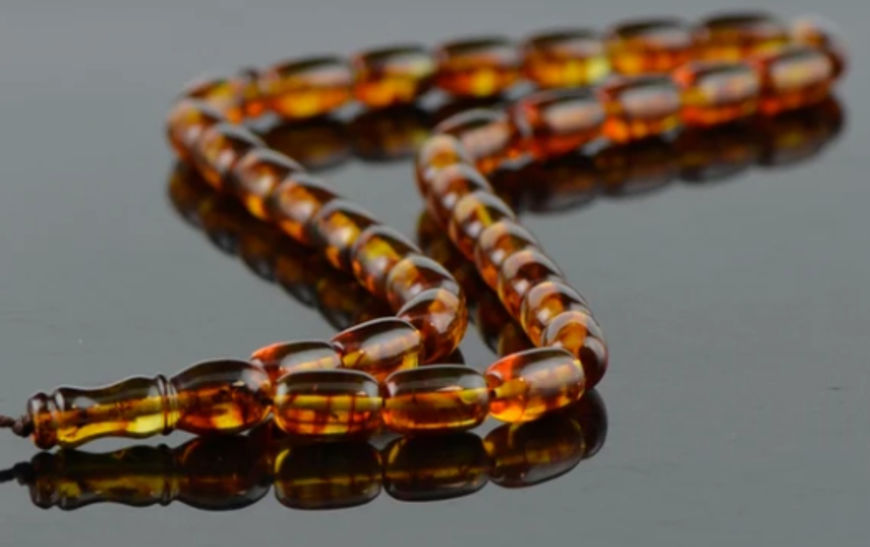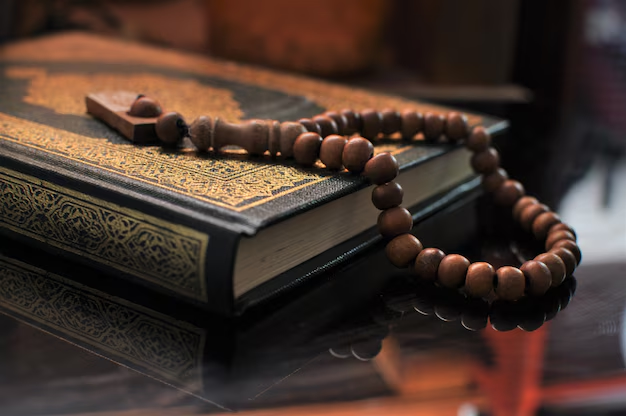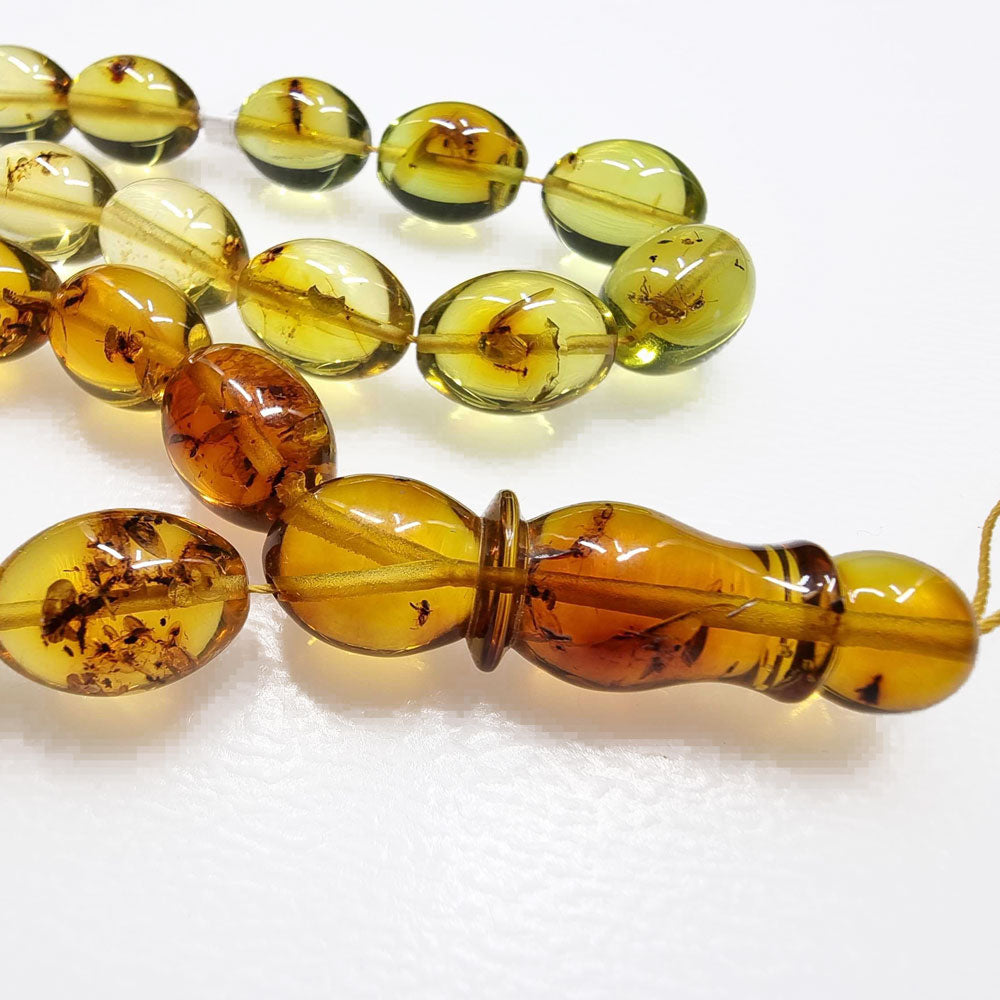|
In Islam, spirituality and mindfulness are central to a believer's daily life. One of the most meaningful tools used for reflection and remembrance of God (Allah) is the misbaha, a string of prayer beads also known as tasbih or subha. These beads, similar in purpose to the rosaries used in Christianity, play a vital role in dhikr, the Islamic practice of repeating the names of Allah and other sacred phrases. This article delves into the significance of the misbaha in Islam, the practice of dhikr, and how these prayer beads aid in deepening a Muslim's spiritual connection.

The Meaning of Misbaha in Islamic Tradition
The misbaha (or subha) typically consists of 33 or 99 beads, each representing one of the 99 names of Allah, also known as Asma'ul Husna (The Beautiful Names of Allah). In Islam, reciting these names fosters a greater understanding of God's nature and attributes. The misbaha serves as a physical reminder of one's faith and is used to assist in counting these sacred names or other devotional prayers, helping Muslims stay focused and mindful.
Historically, the use of prayer beads has roots in ancient spiritual traditions, but in Islam, the misbaha holds a special place. While not obligatory in Islamic worship, it is widely embraced as a tool for personal devotion and as a means of calming the heart and mind during dhikr sessions.
Dhikr: The Remembrance of Allah
At the heart of using the misbaha is the practice of dhikr, which means "remembrance" in Arabic. Dhikr is the repetitive recitation of certain phrases that glorify and praise Allah, such as:
- Subhanallah (Glory be to God)
- Alhamdulillah (Praise be to God)
- Allahu Akbar (God is the Greatest)
These phrases can be recited alone or collectively, and they help Muslims reflect on the greatness of Allah and cultivate gratitude. The misbaha makes it easier to maintain count while reciting the prescribed number of repetitions, typically 33 times for each phrase in dhikr.

The Symbolism of the Number 99 in the Misbaha
The traditional 99-bead misbaha represents the 99 names of Allah, which are each attributed to qualities that describe God's supreme nature. These include names such as Ar-Rahman (The Merciful), Al-Malik (The King), and As-Salam (The Source of Peace). Reflecting on these names is believed to bring a Muslim closer to understanding Allah's divine essence.
Some misbaha have 33 beads, which is a third of 99, and they are used by counting through the 33 beads three times to complete a full recitation of Allah's 99 names. The number 33 is also significant in Islam, as it reflects the number of times each phrase (Subhanallah, Alhamdulillah, Allahu Akbar) is traditionally repeated after the daily prayers (salat).

Misbaha and Sufi Traditions
The misbaha plays a significant role in Sufism, the mystical branch of Islam that focuses on attaining a deeper, more personal connection with Allah through love and devotion. Sufi practices often involve long sessions of dhikr, in which the repetition of God's name leads to a state of spiritual ecstasy or deep meditation.
In these practices, the misbaha serves as a crucial tool, guiding the rhythm of recitation and maintaining focus. For Sufis, the misbaha is not only a counting device but a companion in their spiritual journey toward achieving closeness with Allah.
Misbaha as a Gift and Cultural Symbol
Beyond its religious function, the misbaha holds cultural significance. It is often given as a gift during religious celebrations such as Eid, weddings, and other important life events. These prayer beads can be crafted from various materials, including amber, wood, precious stones, and even gold, which can reflect the individual's personal or cultural preferences.
Amber, in particular, is a popular material for misbaha beads, especially in the Middle East, where its natural beauty and supposed healing properties are valued. Whether simple or intricately designed, misbaha beads are treasured for both their spiritual and aesthetic qualities.
Benefits of Using the Misbaha in Dhikr
Using a misbaha during dhikr offers several spiritual and psychological benefits:
- Enhanced Focus: The physical act of moving the beads between fingers helps maintain concentration during recitations, minimizing distractions.
- Mindfulness: By associating the tactile sensation of the beads with sacred phrases, Muslims become more mindful of Allah's presence in their lives.
- Emotional Calm: Repeating the names of Allah while counting on the misbaha can bring a sense of tranquility and emotional peace, helping individuals cope with stress or anxiety.
- Spiritual Discipline: Regular use of the misbaha encourages consistency in dhikr and other spiritual practices, reinforcing one's faith and devotion.
The misbaha is more than just a string of beads; it is a sacred tool that supports Muslims in their remembrance of Allah through dhikr. Rooted in centuries of Islamic tradition, these prayer beads hold deep symbolic meaning and play a significant role in the spiritual lives of believers. Whether used during daily prayers, in Sufi rituals, or as a cherished cultural gift, the misbaha serves as a constant reminder of the beauty and power of Allah’s names and attributes. As Muslims continue to seek closeness with their Creator, the misbaha remains a simple yet profound way to enhance spiritual mindfulness and inner peace.
By integrating the misbaha into their worship, Muslims around the world enrich their spiritual practices and foster a deeper connection with Allah through the art of dhikr.
|